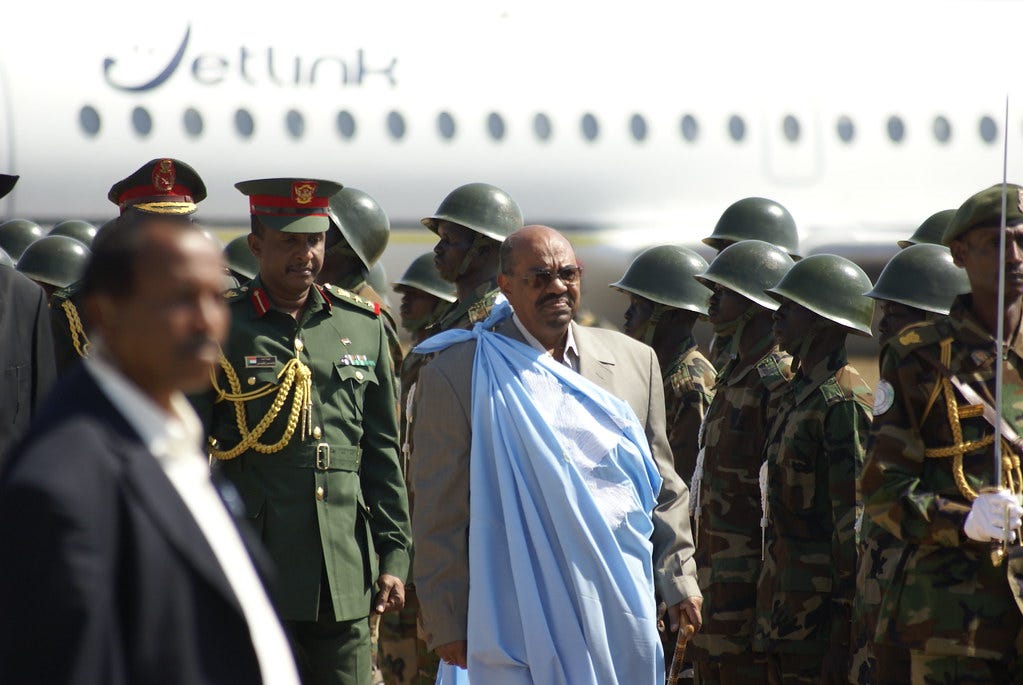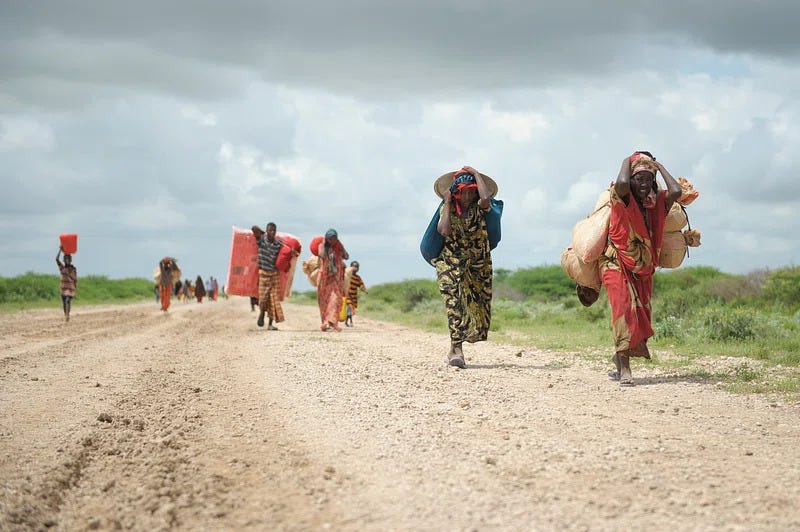The scourge of war has entered its second year in Sudan, triggering what some are calling the worst humanitarian crisis we have yet witnessed. This, in addition to the September 2 landslide in the Darfur region of Western Sudan, which has a projected fatality of about 1,000 people, has turned the situation on the ground from bad to worse.
War broke out in April 2023, about four years after Sudan’s then-President Omar al-Bashir was removed from office after a series of mass protests. Following al-Bashir’s removal, a transitional government, led by a civilian president, was put in place. This was quickly dispensed with by the 2021 coup led by the Sudanese Armed Forces (SAF) and the Rapid Support Forces (RSF)—the latter of which were formed to fight al-Bashir’s wars against the non-Arab groups in Darfur, a population that has historically suffered the most oppression and neglect by the ruling class Arab in the country.
This momentary allyship between the SAF and RSF, however, proved short-lived when disagreements over the consolidation of the RSF into the army eventually led to the RSF’s mobilizations in the cities of Merowe and Khartoum, the capital. By mid-April 2023, the war began in earnest with the RSF attacking military bases and airports, as well as closing major roads leading in and out of Khartoum.
For two years, this intense power struggle wreaked havoc on African people. Access to food, medical care and the ability to even move around the country has been nigh on impossible—a task that only a lucky few have been able to manage. Even then, it is with great difficulty and risk.
When the frontlines of the war shifted to Kordofan’s southern region in central Sudan, the BBC managed to acquire a firsthand account of a pregnant African woman who went to great lengths to escape En Nahud—a city now seized by the RSF.
She told the BBC, “There were no hospitals anymore, no pharmacies…and I was afraid if I stayed longer, I wouldn’t find any vehicles heading out. Travel had become almost non-existent: incredibly difficult and extremely expensive.”
She reported having to travel in trucks hardly fit for the muddy and potholed roads that periodically led to the breakdown of the cars, adding to the anxiety and fear that the RSF would eventually reach her before she left the country.
Despite her harrowing story of escape and her eventual respite in Kampala, Uganda, hers is a story of a few. Her family and many other African people in the country have no means at all to escape, bearing the brunt of a war that they ultimately have no stake in.
Though the RSF and SAF are the main belligerents, this war has many factions—each fighting for separate interests and controlling different areas of Sudan’s oil and resource-rich land—with alliances and the interests of international actors constantly changing and complicating matters in a war that seems to have no immediate end in sight
There have been numerous estimations of the death toll, injuries and displacements since access to areas impacted has proved difficult. Using satellite imagery, research groups have put the death toll from anywhere between 20,000 and 150,000 based on Science magazine’s February report. According to the World Food Programme, two million people are facing famine, with 25 million experiencing acute hunger.
One of the worst-hit areas is the city of El Fasher in North Darfur. Besieged since April 2024, El Fasher has been impossible for aid workers to enter and for residents to leave since the RSF has essentially built a wall around the city. The Yale Humanitarian Research Lab has called this a “literal kill box.”
The RSF has been accused of war crimes such as forced disappearances, the sexual assault and rape of women and the ethnic cleansing of “non-Arabs” in Sudan. Quiet in the Palestinian case, but quick to speak up here, on January 7, 2025, U.S. secretary of state Anthony Blinken issued a determination of genocide being committed by the RSF, with its leader, Hemedti, also being accused of allowing the war crimes.
However, this war is not without its colonial context. Sudan was colonized by Britain in the late 19th century, under joint control with Egypt in what was called the “Anglo-Egyptian Condominium.”
Like in much of Africa, fomenting tensions among Africans was a classic tool used to facilitate the takeover of the land and the exploitation of natural resources. In Sudan, this meant alienating Africans from the Arab population by bestowing rights, advantages and governing power to the latter at the expense of the former.

Years later, this led Africans in the Darfur region to organize popular protests and uprisings against al-Bashir’s government. In 2003, al-Bashir responded by unleashing his armed forces and perpetrating the ethnic cleansing and genocide on African people in Darfur—a carnage that lasted well into 2007 with about 300,000 estimated killed.
The colonial attack on Sudan and the neocolonial government that continues to act on behalf of the colonizers and the petty bourgeoisie (a class of opportunistic ruling Africans whose interests align with the colonizers) are the direct causes of the decades of turmoil that African people in Sudan have been subjected to.
The wars waged on African and colonized people today will always be the result of the colonial attack on Africa, because it is this attack that has created a world system that has at its basis the exploitation of the rich resources of Africa and the labor of African people. The events unfolding today are inseparable from this primary attack.
What Chairman Omali Yeshitela has termed the uneasy equilibrium, the shaky foundation within which this world economy is maintained, is expressed in bold relief in every instance of war, “natural” and manmade disasters and every oppressive law and practice that some are quick to term “fascism.”
But the reality is that the colonial system under which we live has always been fascistic to African and colonized people. What they call “fascism” is just the extension of the impact of colonialism into the lives of white people. And it is in continuing this just fight against colonialism that the African People’s Socialist Party (APSP) has dedicated its existence.
There is an African proverb that says that when elephants fight, it is the grass that suffers. Hence, when war breaks out between warring factions of neocolonial, petty bourgeois forces in Africa, the interests of the working masses of Africans are never prioritized.
The same determination made by Secretary General Luwezi Kinshasa in a June 2019 Spear article in the wake of al-Bashir’s fall remains relevant in this iteration of the neocolonial scourge:
“What is missing is the revolutionary organization to defend the immediate and long-term interests of the African working class and poor peasants. The creation of the African People’s Socialist Party to transform this mass mobilization and struggle to a revolutionary, National Democratic program is the only immediate minimum program—as part of one struggle for One Africa and One Nation.”
Revolutionary working class organization must be built on the ground in Sudan and everywhere else Africans are.
Build the African Socialist International!
Uhuru!







